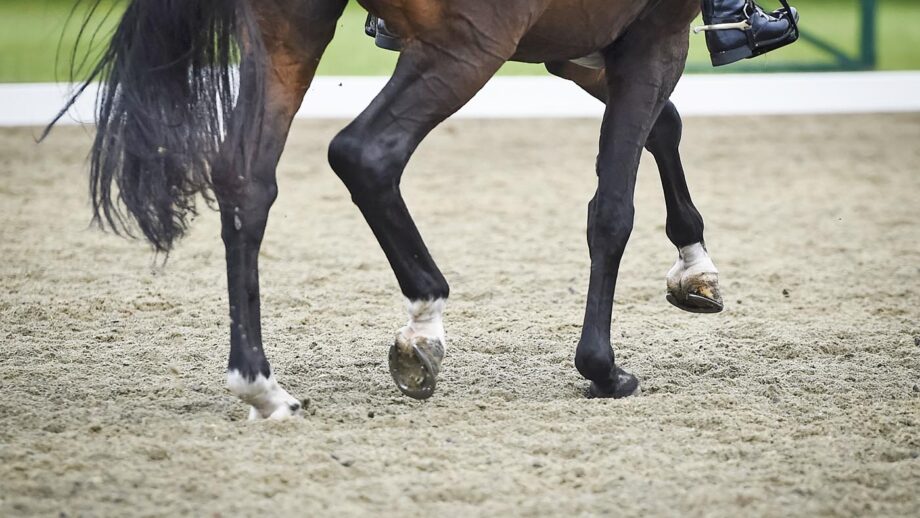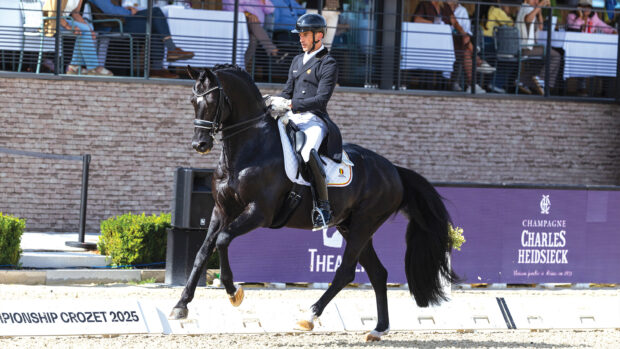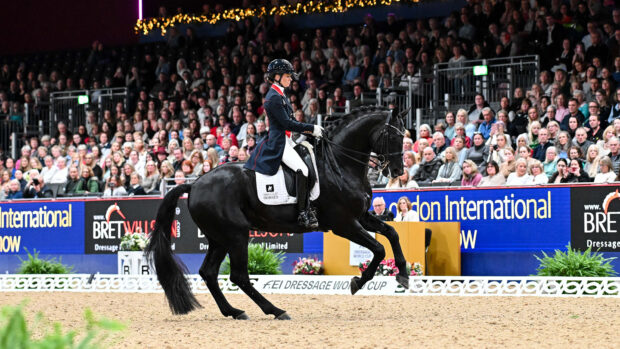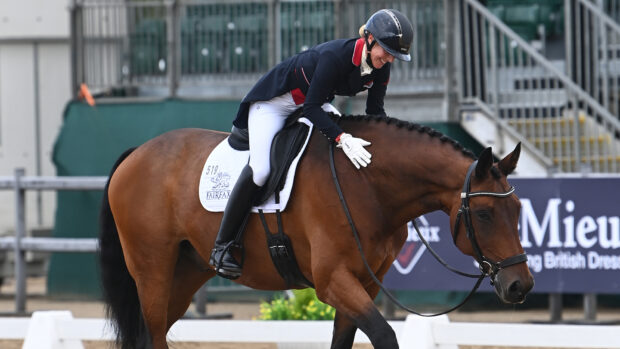Pammy Hutton FBHS, an international competitor and trainer of Olympic and Paralympic medallists, shares her thoughts on falling entries and why para dressage needs real belief to succeed
As entries dwindle at many dressage shows, I was shocked to see the trend spilling over to the regional championships. Some venues even issued last-minute “entry reminder” pleas.
So, at the height of summer – why? Money, of course, but is there also a feeling of hopelessness?
At the highest level, our top riders are peerless, with plenty of up-and-coming young talent on superb horses snapping at their heels. But the everyday rider, of whom there are many more, now stays at home.
British Dressage is inclusive, offering classes and championships for most. The void appears to be from elementary to prix st georges.
The top end is full at some Premier League shows, but at other venues not so, and some silver regionals have been sparse. Area Festivals are still crammed – with many too nervous to move up – and are stronger than many a silver class.
I don’t have a solution. But with so much being online these days, the feeling of camaraderie at shows is not so obvious. Having a few event horses now and rubbing shoulders with showjumpers, I note that their lorry ramps are slightly more fun-filled.
Dressage is judgmental – and don’t I know it! It was OK when I was an up-and-coming, but now I’m older-and-going, critical comments abound.
On another note, why do we do shoulder-in in elementary tests in rising trot? Surely sitting trot should be used for this classical movement, which is supposed to be done in collected trot.
On the other hand, a rising trot may come as relief to those hollow horses whose riders haven’t yet mastered the sitting trot. Perhaps there should be more emphasis on seat development without stirrups to help riders learn to sit to the trot with softly following seat bones.
Para problems
Para dressage is in a new era with tougher international competition and new faces among the British team riders and management.
I recently attended a memorial service for the late, great, medal-winning, para pioneer Anne Dunham. I gave a talk on how inspirational Anne was, her legacy at the British Horse Society, creating a pathway for coaches with disabilities, and how the Brits would regain gold medal status.
On the day of Anne’s memorial, Lee Pearson kicked a mark out of the park at Wellington International, putting him closer to medals than we have seen for a while. Yet I was informed by some at the sharp end of the sport that it’s unrealistic to expect a Paralympic team gold at Los Angeles in 2028 – a negative attitude that quite frankly shocked me.
Instead, the focus is apparently on individual medals. But surely that’s the wrong approach?
Lee may well need another horse for Los Angeles. I will help find one – but who will join me unless there’s genuine positivity around medal potential?
I’ve also been watching and supporting several up-and-coming para riders, including one who is clearly not “on the radar” but deserves to be. How do I know? Because the number of World Class personnel surrounding a rider indicates how “on the radar” they are.
The well-proven World Class structure, which follows other sports, is delivering. But a serious review of manpower – and where the money is spent – is needed.
At international shows, the British team is regularly backed up by a large contingent of staff. Whereas the Dutch, Americans, Germans and Danes all operate successfully with a smaller, streamlined support team led by an expert head coach, team manager or both.
The World Class Programme and the funds behind it are wonderful. But I’d like to see more money going to the riders and less to unnecessary travelling and non-travelling support staff.
Crucially, there must be strong, competent leadership with a fiercely held belief that we can reclaim gold.
And what do I think of Charlotte Dujardin’s winning comeback? Pleased, of course. I’ve always been a turn-the-page-over person.
● Have you lost your motivation to compete? Tell us why by writing to us at hhletters@futurenet.com, including your name, nearest town and county, for the chance for your letter to appear in a forthcoming issue of the magazine
- To stay up to date with all the breaking news from major events throughout 2025, subscribe to the Horse & Hound website
You might also be interested in:

How to watch the European Dressage Championships via live streams wherever you are around the world
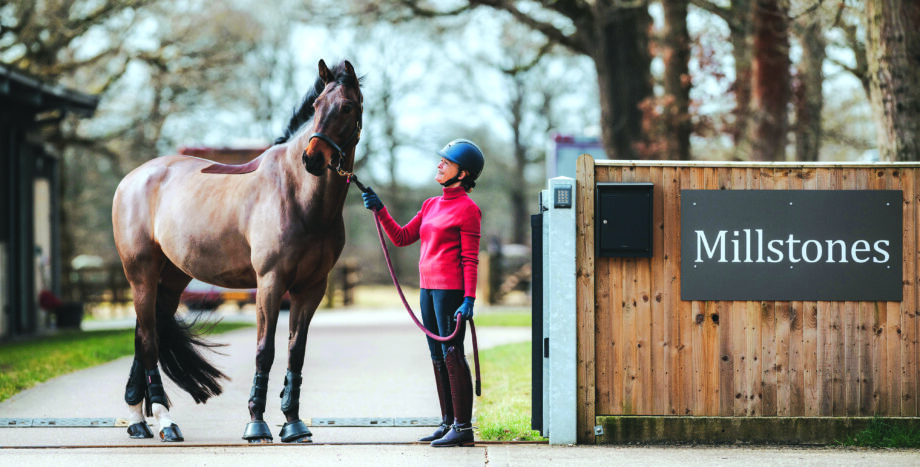
Meet Nicola Naylor, the blind grand prix dressage rider on the verge of her European Championship debut for Britain
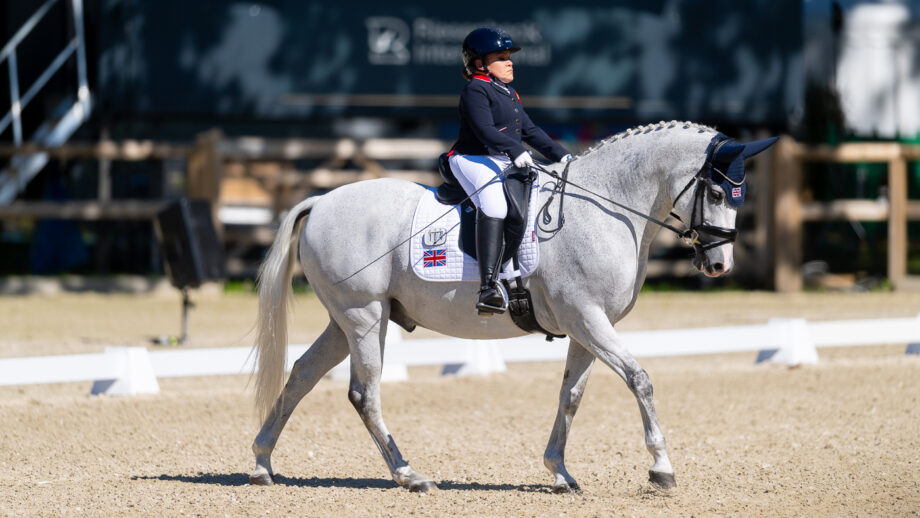
New names and medallists carry Britain’s hopes at European Para Dressage Championships

Subscribe to Horse & Hound magazine today – and enjoy unlimited website access all year round

